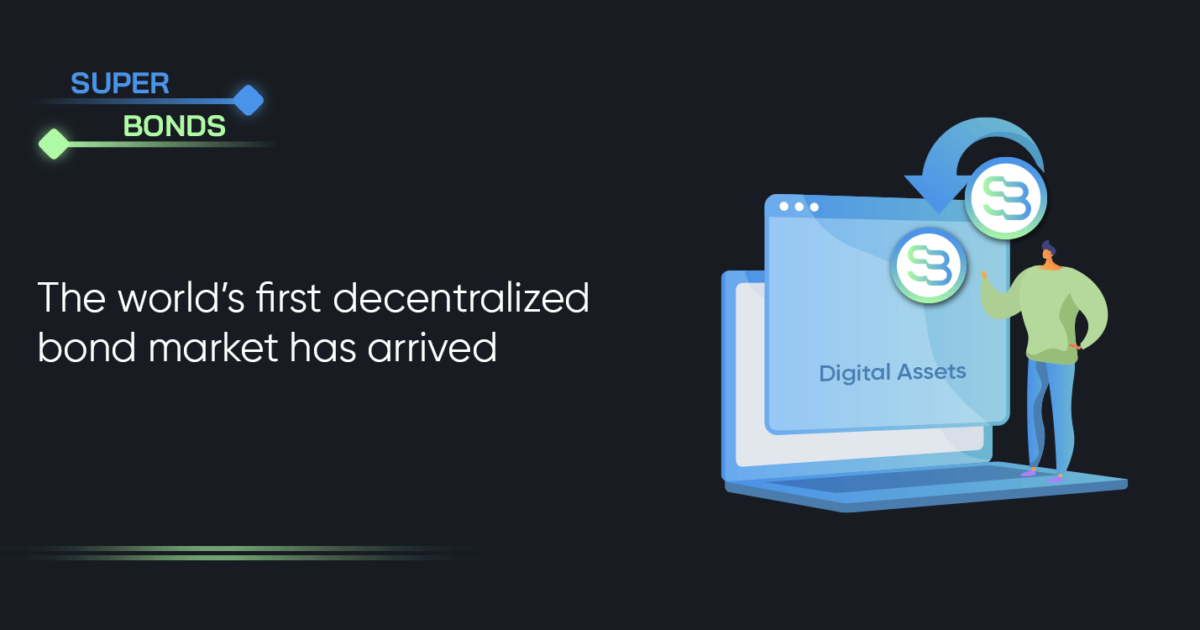By 2021, Statista found that there were over nearly 6,000 cryptocurrencies in existence, a staggering increase from the handful of digital tokens in 2013. With the rapidly evolving and expanding cryptocurrency industry, It’s no wonder that the amount of tokens has been skyrocketing.
Alongside the rise in tokens, there has also been an acceleration in the number of investment platforms within the cryptocurrency ecosystem. Although there are many platforms, many come with issues, including lock-up periods, lack of transferability from platform-owned wallets, and large transaction costs. Additionally, being a liquidity provider in the Ethereum network, withdrawal fees can significantly take away from the profits investors are receiving.
As the industry continues to reach new heights, technology is adjusting and evolving to keep up with the changing needs of the market. One platform that is addressing some of these issues is SuperBonds, the very first DeFi bond market. It’s built on Solana, a blockchain that operates without the traditionally high fees.
Bonds allow investors to loan borrowers, like companies or a government, who use the cash towards funding their operations, while the investor receives interest on the investment. They are a popular investment choice, especially in traditional finance, as they are typically a low-risk option and return on average around 5% annually. They are commonly invested into diversified portfolios as they offset riskier investments, however, they often come with hefty fees.
SuperBonds allow DeFi investors to buy bonds and have a guaranteed return in $USDC. It also allows users the freedom to store their investment in whichever wallet they want; they can self-custody it in any wallet of their choosing. SuperBonds circumvents the high transaction costs by making use of the low-fee Solana network.
Additionally, many CeFi (centralized finance) products in the cryptocurrency space today inherently require funds to be stored within the platform in order to generate yield, however, DeFi (decentralized finance) has provided an alternative to this.
“With CeFi crypto products today, there is the hidden risk of fund storage on a platform to generate yield, which many DeFi products solve. However, with DeFi protocols, there is uncertainty in terms of the terminal value, thus rendering collateralization prospects slim for the user’s LP tokens,” the company states in a blog post.
SuperBonds eliminates these issues by enabling bonds with certain end-values that the user can self-custody—meaning users have possession of their digital assets because they control the private key. To simplify the bonds market, the platform issues bonds as NFTs which can be redeemed anytime for a fixed yield, and can then be settled by any end-owner holding the NFT.
The platform also offers bond underwriting, allowing investors to park their investments in a fixed-income bond, with Bond Underwriters taking the other side of the trade. These liquidity providers send capital to the trader’s pool to create the maximum interest possible for traders. SuperBonds also offers staking for those to yield rewards for holders. 60% of the total emitted tokens are reserved for the protocol rewards and the different participants receive rewards in SB tokens. Bond underwriters can stake their LP tokens as well as any SB token holder can stake SB tokens to earn more rewards. A portion will accrue towards flexible rewards for bond buyers, and a residual stream will accrue to the Treasury.
Investing in bonds is a popular traditional investment choice, but high fees and restrictions have created barriers for investors. Thanks to SuperBonds, investing in bonds can now provide crypto investors with not only more flexible yield opportunities, but at a lower fees.




